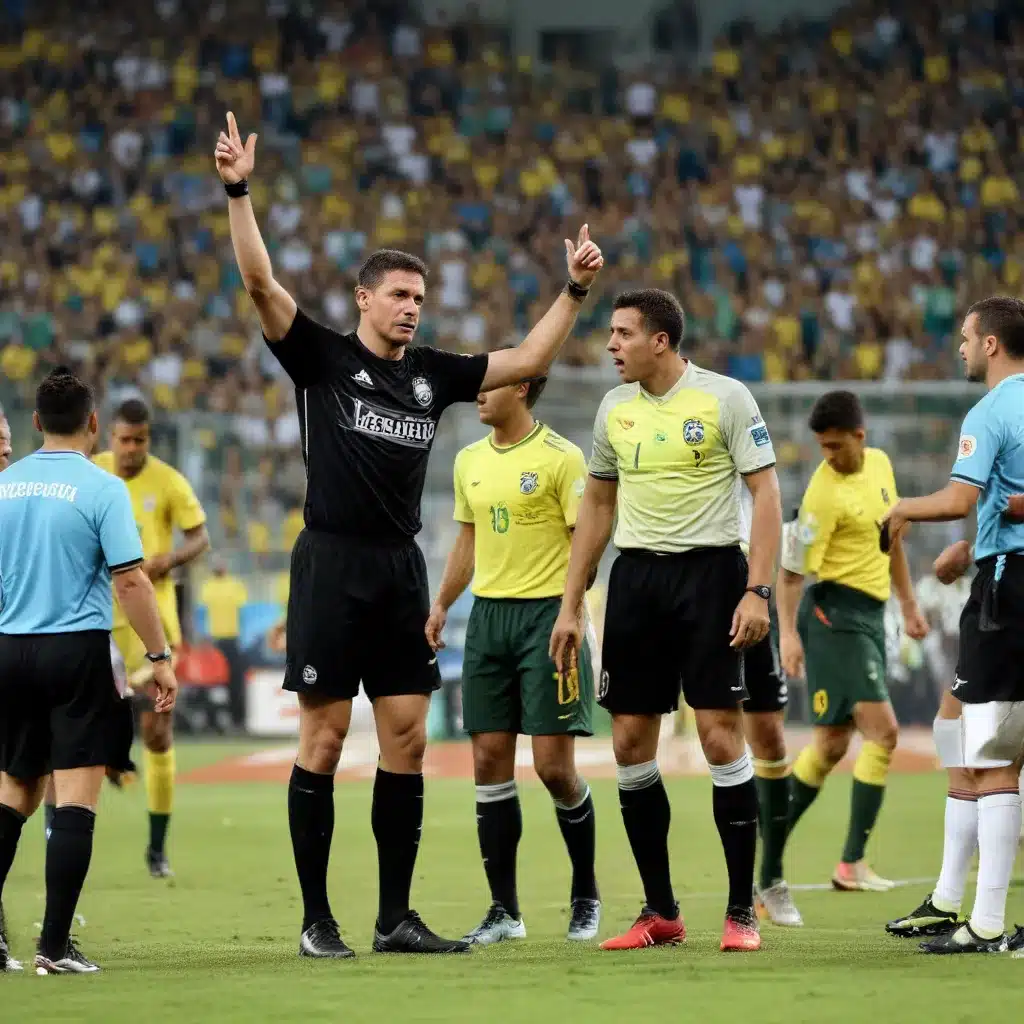
Brazilian Football League (Brasileirão)
The Brasileirão, Brazil’s top-flight football league, is a tapestry of rich history, unwavering passion, and unparalleled talent. From the iconic Maracanã stadium to the fiery rivalries that captivate the nation, this competition is the heartbeat of Brazilian football. However, amidst the electric atmosphere and breathtaking displays on the pitch, a persistent challenge looms large – the ongoing debate surrounding refereeing decisions and their impact on the game.
Overview of Brasileirão
The Brasileirão, officially known as the Campeonato Brasileiro Série A, is a league steeped in tradition, dating back to its inaugural edition in 1959. Over the decades, it has evolved into one of the most competitive and unpredictable leagues in the world, attracting some of the game’s brightest stars and most fervent supporters.
The league is structured into a single division, with 20 teams competing in a double round-robin format. Each team plays the other 19 teams twice, once at home and once away, resulting in a total of 380 matches per season. The team that accumulates the most points at the end of the campaign is crowned the Brasileirão champion, earning a coveted spot in the following year’s Copa Libertadores, South America’s premier club competition.
Refereeing Challenges
However, the Brasileirão’s rich tapestry is not without its challenges, and the topic of refereeing has long been a source of intense debate and controversy among fans, pundits, and clubs alike. The decision-making of match officials has often been scrutinized, with accusations of inconsistency, bias, and a lack of transparency plaguing the league.
One of the primary issues that has plagued the Brasileirão is the perceived lack of consistency in refereeing decisions. Fans and clubs often bemoan the fact that similar infractions are punished differently, with some incidents leading to yellow or red cards, while others go unpunished. This lack of uniformity in the application of the laws of the game has led to a sense of frustration and a growing distrust in the officiating.
Furthermore, the influence of refereeing decisions on match outcomes has been a constant source of contention. Contentious calls, such as disallowed goals, dubious penalty decisions, or dismissals, have often been the subject of heated debates, with clubs and supporters claiming that these decisions have had a significant impact on the final result. This perceived bias, whether real or imagined, has only served to further erode the confidence in the refereeing system.
Refereeing Oversight and Accountability
The Brazilian Football Confederation (CBF), the governing body of football in the country, has the responsibility of overseeing and regulating the refereeing in the Brasileirão. However, the perception of a lack of transparency and effective disciplinary measures has only exacerbated the issue.
The introduction of the Video Assistant Referee (VAR) system in the Brasileirão in 2019 was seen as a step towards improving the accuracy and consistency of refereeing decisions. The VAR technology, which allows match officials to review certain incidents and overturn or confirm the on-field call, has been met with mixed reactions from fans and clubs.
While the VAR has been praised for its ability to correct clear and obvious errors, the implementation and decision-making process have been the subject of ongoing criticism. Fans and clubs have often expressed frustration over the lack of clear communication and explanation from the VAR team, leading to a perception of a lack of transparency and accountability.
In an effort to address these concerns, the CBF has introduced disciplinary measures for match officials, including fines and suspensions for poor performances or errors. However, the effectiveness of these measures has been questioned, with some arguing that the sanctions are not severe enough to drive meaningful change in the refereeing culture.
Fan Perspectives and Debates
The refereeing controversies in the Brasileirão have not only impacted the clubs and players but have also deeply resonated with the passionate fan base. Supporters have been vocal in their criticism of the officiating, often taking to social media and fan forums to voice their frustrations.
The impact of these refereeing issues on supporter confidence has been significant. Many fans have expressed a growing sense of disillusionment, feeling that the integrity of the competition has been compromised by poor officiating. This has, in turn, led to a decline in attendance at some stadiums, as fans become increasingly disillusioned with the game they once adored.
The debates surrounding refereeing in the Brasileirão have also extended beyond the stadiums and into the realm of media and online discussions. Pundits, journalists, and fans have engaged in lively discussions, analyzing the decision-making process, the role of technology, and the broader implications of the refereeing challenges.
Improving Brasileirão Refereeing
As the Brasileirão continues to evolve and captivate audiences both domestically and globally, addressing the refereeing challenges has become a pressing priority. The CBF and the league’s governing bodies must take decisive steps to enhance the quality, consistency, and transparency of officiating.
One key area of focus should be the training and development of match officials. Investing in comprehensive education programs, practical training, and ongoing assessment can help to elevate the standards of refereeing and foster a culture of accountability. Additionally, the integration of technology-assisted decision-making, such as the continued refinement and effective implementation of the VAR system, can contribute to more accurate and consistent rulings.
Enhancing the communication between match officials, clubs, and fans is another critical aspect of improving the refereeing landscape in the Brasileirão. Clear and timely explanations of contentious decisions, as well as a commitment to addressing concerns and feedback from all stakeholders, can help to rebuild trust and foster a more transparent environment.
As the Brasileirão continues to captivate audiences worldwide, addressing the refereeing challenges must remain a top priority. By embracing a comprehensive approach that combines improved training, technology-driven decision-making, and enhanced communication, the league can pave the way for a future where the beautiful game is celebrated not only for its on-field brilliance but also for its fair and consistent officiating.
